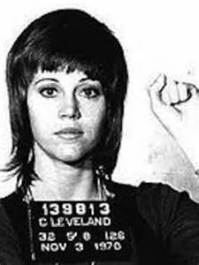The problem with a book like this is that it can easily overestimate the importance of its subject, and Timothy Stanley does not always avoid succumbing to this misapprehension. The topic is not, of course, without its importance for politics and culture have always been intertwined. Movies and television have certainly affected the culture as media with a national reach and provide, in some ways, a greater intensity of imagery than was possible before. Yet it seems to me Mr. Stanley probably overstates the effects of Hollywood on the nexus of money and politics and I do not think, as he asserts, that Hollywood has “helped redefine politicians as celebrities, and reduced important, difficult issues to simplistic fights between good and evil…” Politicians everywhere and at all times are very often celebrities, even some of undoubted depth like King David and George Washington. As for simplification and inappropriate moralization of important and difficult political matters, this is. I am afraid, the very stuff of democratic politics. Just consider, for example, the colorful campaign of celebrity politician General Andrew Jackson. It is therefore hard not to perceive a certain naivete in Mr. Stanley. He seems disturbed by the vulgar nature of U.S. politics and one sympathizes with him; but mass politics, mass entertainment, even mass religion are inevitably going to have a strong vulgar streak. It is the way of the world. Hollywood may contribute to this but it is hardly a fundamental source of it.
Other criticisms can be levelled at this book, yet, in truth, it would not be at all fair to be completely dismissive of it. Mr. Stanley provides an informative history of Hollywood’s interactions with politicians of both the right and the left back to its earliest days and offers some insights. For example, he explains the importance of networking, and its particular characteristics, in Hollywood and how leftist political causes provide opportunity for this. He is also very good on seeing the tangle of idealism, delusion, self interest, and self-infatuation that is at the root of much of Hollywood celebrity political activism. Additionally, he sometimes recognizes the limits to Hollywood’s influence (though this does not prevent him from rightly seeing the important role it has played in the increasing acceptance of homosexual behavior in the country).
Therefore, despite weaknesses, the book is worthwhile.


